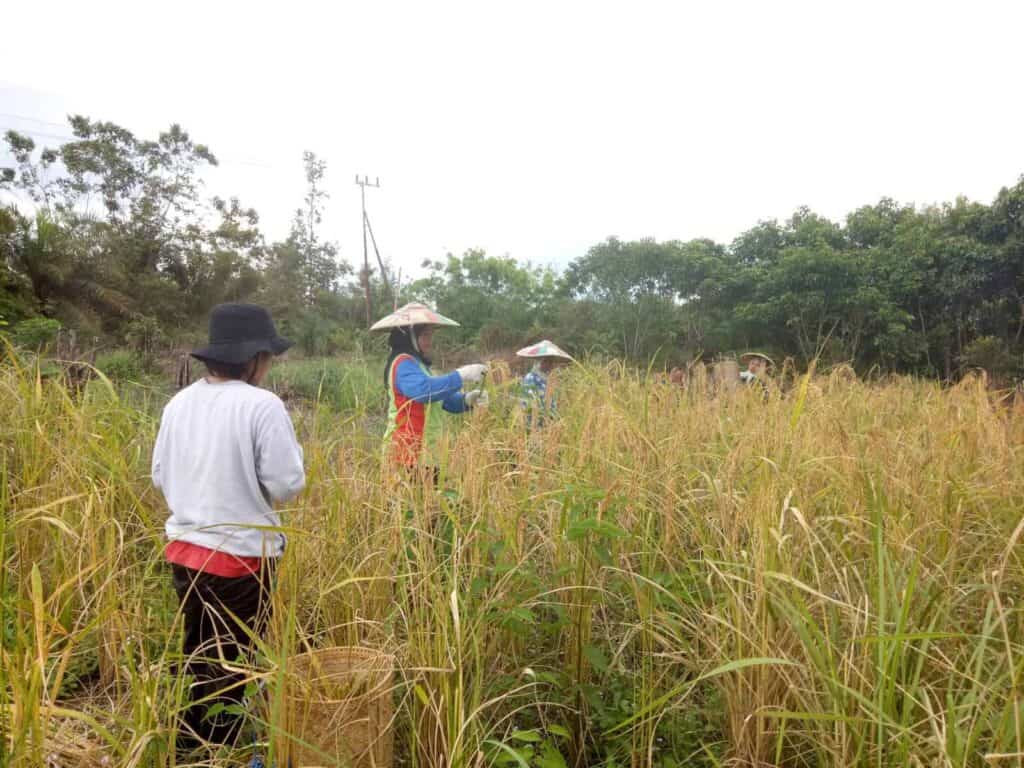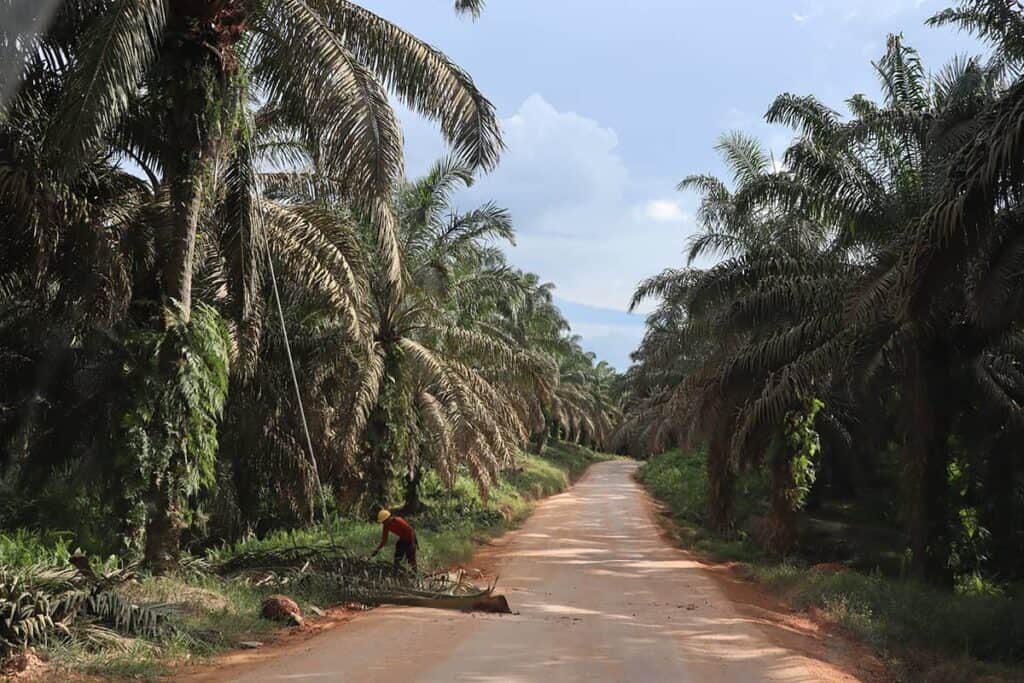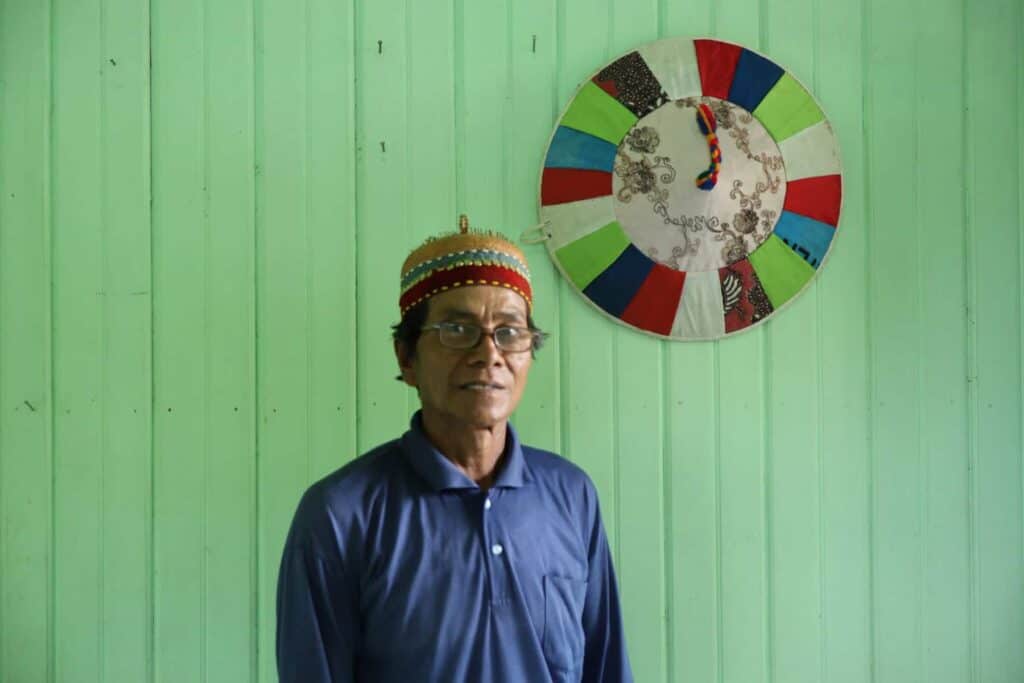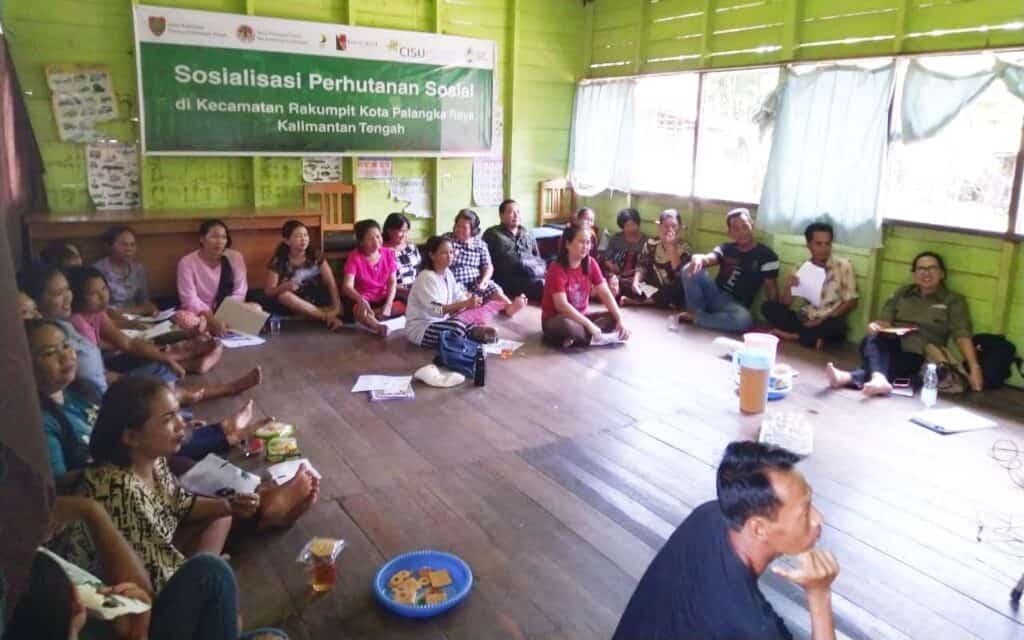It is good for the rainforest to be managed by indigenous people, with their local knowledge. However, plantations are slowly taking over the forest, hectare by hectare, and it is a difficult and protracted task to obtain the rights to the land. For that reason, Save the Orangutan and our partners help local communities with this process.
Once they were the people of the forest. They lived in and near the rainforest and used nature’s resources in their daily lives. This is still the case for many of Borneo’s indigenous peoples. But as time passes and industrial interests overtake more and more of Borneo’s rainforest, many indigenous people have lost much of their land. Land that generations of ancestors have cared for.
Some have been driven from their homes. Others have stayed but can no longer cultivate the land as they have lost their legal rights to it. This has led to poverty and marginalization.
“Traditionally, these people have lived off of nature’s resources. They have cultivated smaller areas, gathered fruits and vegetables in the forest and gone hunting or fishing. When the forest is cleared, they are left behind powerless. These are some of the poorest people in a country with a high poverty rate,” explains Marie Sigvardt, Program Manager at Save the Orangutan.
“At the same time, several studies show that the forest areas where indigenous peoples have rights to the land, are the most well-preserved areas. When you have ownership, you also protect the forest as there is an interest to stop people from the outside from clearing the forest. The results from our own project efforts also confirm this,” Marie Sigvardt adds.
The fight for the rights of indigenous people is therefore a key element in the projects carried out by Save the Orangutan, in collaboration with partner organizations and local communities in Borneo.
Read: Bamboo gives indigenous handicrafts new life

The state owns the land
Without the rights to the areas where indigenous people have lived for thousands of years, it is easier for outsiders to invade the forest – this is to a large extent the case of industrialization.
However, with a document in hand, the locals are secured, which allows them to think long-term. They are not forced to find quick income such as logging or a job at the nearest oil palm plantation. The documentation is also a guarantee for them to not be driven away from their homes, where their cultural identity is strongly connected.
In Indonesia, the state primarily owns all land and thus also the right to hand over rainforest areas to e.g. oil palm plantations. In 2013, however, the Indonesian Constitutional Court ruled that indigenous peoples have the rights to their traditional forest areas.
“In practice, this decision has taken a long time to implement. Therefore, there are very few examples of indigenous people who have had their rights recognized. This is despite the fact that in recent years there has been a great focus on this topic from a political point of view, ” Marie Sigvardt explains.

“Recognition means that we exist”
In addition to the deficient implementation and lack of understanding of the law, applying for rights is a complicated and protracted process. The first step is to be officially recognized as indigenous people – which is not a simple process either.
The lack of recognition is a matter of the heart for 60-year-old Mr. Henrikus Heang Day. His tribe, Dayak Wehea, inhabits six villages in East Kalimantan, which over the years have become surrounded by oil palm plantations.
Dayak Wehea has a rich culture and ancient traditions, yet they are not officially recognized as indigenous people.
“Recognition is a necessity – we need the same rights as others,” says Henrikus Heang Day, when Save the Orangutan’s Project Officer Ditlev Damhus talks to him during a project visit.

The lack of recognition makes it much more difficult to get a formal forest ownership, and this has major consequences for the living conditions in the local communities. Henrikus Heang Day is clearly touched as he explains how family members have struggled to get their tribe recognized, without success.
“It’s a very hard personal thing not to be recognized. The recognition means that we exist in this country.”
A protracted battle
Some indigenous peoples around Indonesia have succeeded in obtaining the rights to use the land. However, only a few have succeeded in obtaining the full rights to an area – so called customary forest (see fact box).
It requires a large amount of documentation. Mapping of areas with GPS and generation of maps, documentation that traditional beliefs and rules are still followed and that they cultivate and care for the forest according to the rules.
“The documentation requirements are too advanced for most local communities to provide them on their own. Additionally, there are several examples of the authorities’ lack of assessment whether the documentation is sufficient,” says Marie Sigvardt.
Customary Forest means that full legal ownership of a given forest area is transferred to the indigenous people who have inhabited the area for hundreds or thousands of years. Customary Forest is one of several types of “Social Forestry”. In Indonesia this covers different types of management initiatives in forest areas, such as state forests, private forests or forests owned by indigenous peoples. Customary Forest is the only type of Social Forestry not limited in time – and thus a real transfer of ownership to the indigenous peoples. The vast majority of land in the Social Forestry category are initiatives without real ownership, but rather access and rights to use the land area. These include “Village Forests” and “Community Forests”, where local communities and indigenous peoples have access and rights to use forest areas for a limited period of 35 years. Here, the application process is less advanced than for the Customary Forest. Data from the end of 2018 show that only approximately 17,000 out of about 1.9 million hectares of Social Forestry land is Customary Forests.
In competition with heavyweights
That is why NGO’s like Save the Orangutan and our Indonesian partners help various tribes with their work for their rights. Save the Orangutan and our partners BOS Foundation, BOS-RHO and Borneo Nature Foundation work with local tribes such as Dayak Wehea, Dayak Katingan and Dayak Ngaju, who live in different areas of Borneo.
According to Marie Sigvardt, there are many challenges associated with the allocation of rights:
“When indigenous peoples apply for land, they are in competition with many other interests in terms of land use. At the same time, Indonesia is widely decentralized, and in some areas there may be many overlapping land requirements. This leads to many conflicts between local communities and businesses, as well as between local communities that are looking to claim the same land area. Therefore, there are many challenges only with mapping of the areas,” Marie Sigvardt explains.

Despite challenges, the work for rights continue to be a central part of the projects – together with other initiatives to develop the local communities. This includes teaching about environmental issues and sustainable sources of income.
“We work with indigenous peoples’ rights based on a holistic approach, where the work for rights and local development efforts supports the conservation of the forest,” explains Marie Sigvardt.
You can read more about our collaboration with indigenous people here.